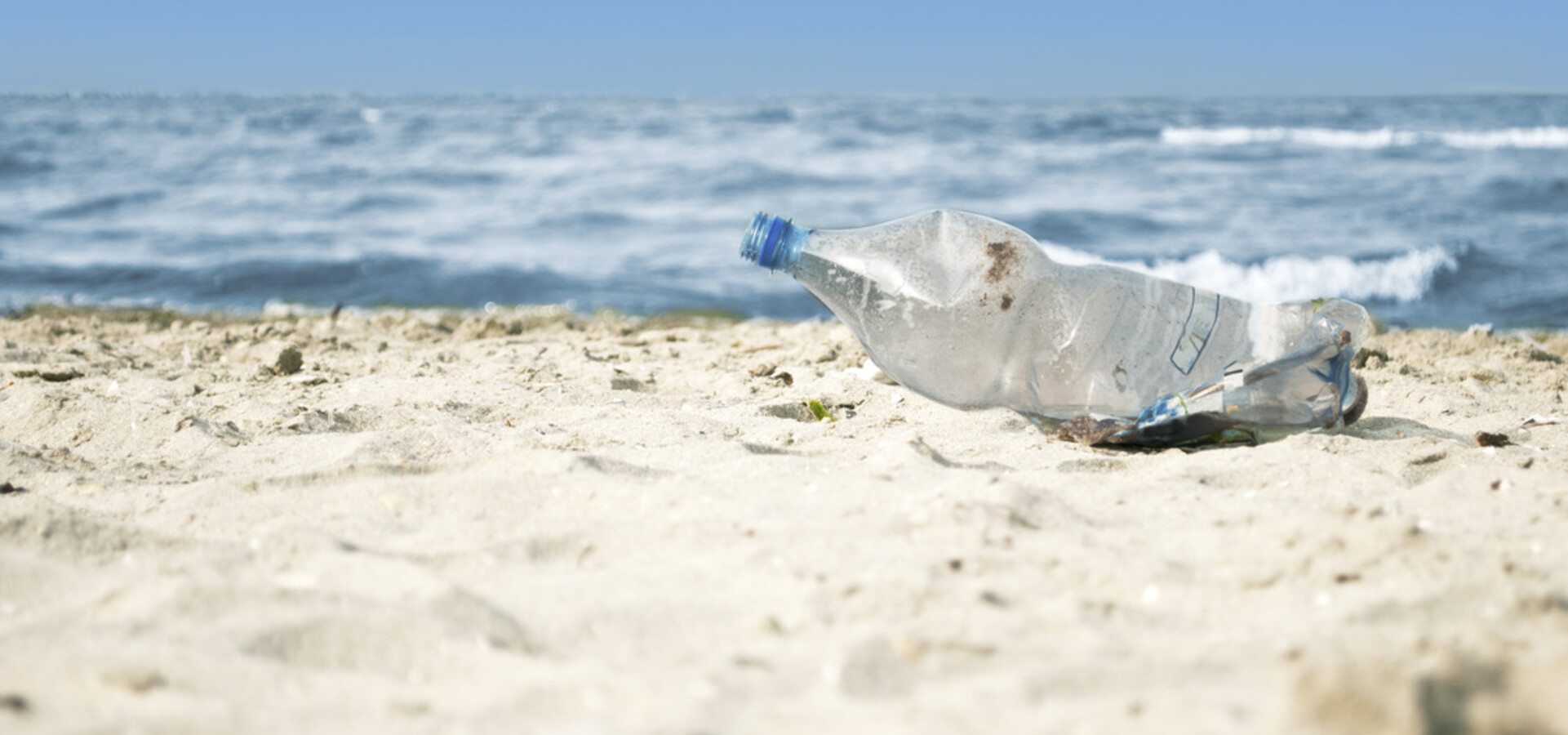
We consume 1.7 Planet Earths worldwide every year. In other words, we use 1.7 times more resources each year than we can replenish. At the same time, a growing throwaway mentality is increasing the amount of waste we produce globally. We are responding to these challenges by conserving and reusing valuable resources.
We use sustainable and recycled raw materials in our products and packaging, and right at the beginning when we’re developing our products we test their durability and assess their suitability for recycling, thus reducing their environmental footprint.
Our approach
Turning old into new
Plastic waste can pollute nature. But it can also be used as a valuable resource for new products, as it is here. For example, PET bottles can be turned into children's fashion: For one children's rain jacket sold in 2021, 55 PET bottles were recycled (source: Textile Exchange). In 2021, we not only produced textiles from recycled materials, but also expanded our range of hard goods products with recycled material. For example, we offered dishwashing brushes with recycled plastic and hot water bottles with a cover made from recycled polyester. We obtain recycled synthetic fibres not only from PET bottles, but also from fishing nets and textile waste. This saves raw materials and protects the environment.
We are also pleased to be able to extend the topic of recycling to new materials and production processes. In 2021, for example, we used agricultural plant waste to naturally dye clothing for the first time and had upcycled products made from the promotional posters of an advertising campaign. In 2022, we used recycled cotton in clothing for the first time.
15% of fibres in textiles (material weight) were from recycled sources in 2021
5% of hard goods products (purchase quantity) in 2021 contained recycled materials


A lasting friendship
There are many good reasons to keep buying something new, but there are even better reasons to use a product for as long as possible: This saves resources, reduces the burden on our ecosystems and thus protects our livelihood. That's why quality and the long life of our products have been our focus for more than 70 years. We have our own quality team that checks the quality of Tchibo products.
To ensure that our customers enjoy our products for a long time or again, we provide tips on our website www.tchibo.de/nachhaltigkeit and on our social media channel for the correct care of products, for example how to remove rust from kitchen knives with a cork. Upcycling ideas can also be found here. With new services on the topic of repairs and spare parts, such as a video inspection for the Esperto fully automatic coffee machine, we help our customers to use our products for a long time.
Parting ways, the right way
If products can no longer be used, "fair recycling" is important to us. On our website, we encourage our customers to return their old clothes and textiles simply and professionally via the user-friendly take-back system of our partner FairWertung e. V.. Consumers can use FairWertung to find return points for old clothes of the 130 non-profit organisations affiliated to the umbrella organisation and thus hand in their old clothes locally. Our customers can also find information on the correct waste separation and free disposal of old electrical appliances, used batteries, lamps and packaging on our website.

Tchibo Share
2018–2020
In 2018, we launched Tchibo Share as a prototype and ‘testing ground’ for sustainable consumption in collaboration with the company kilenda. We were the first mainstream provider to rent out children’s and women’s clothing – trousers, jackets, waterproofs, bed linen and accessories – online.
We refined the service in 2019, launching new product ranges (toys, baby carriers, children’s furniture, camping equipment and coffee accessories) and trialling partnerships with other sustainable brands and producers.
In 2020, we also began offering selected products for sale in our second-hand store in addition to our rental service. These were mainly products showing minor signs of wear, which no longer met our strict quality requirements for rental but which were still in perfectly good condition and could be used or worn again.
Overall, the rental service was viewed very positively both by the media and by our customers and was seen as innovative. However, the number of actual users remained rather limited. Problems identified were the narrow product range, the unfamiliar way the service worked and a lack of awareness of the service.


The end of Tchibo Share – and a new beginning
Despite a very positive response from the public and refinements to the product range and service, it was not possible to attract sufficient numbers of customers to the service before the COVID-19 pandemic hit. Due to the further decline in orders during the pandemic and our partner company kilenda going out of business, we decided to discontinue the rental service towards the end of 2020. We are currently in the process of developing a new concept aimed at making sustainable consumption more mainstream. In parallel with this, we are also integrating closed material cycles into our product and packaging design.
